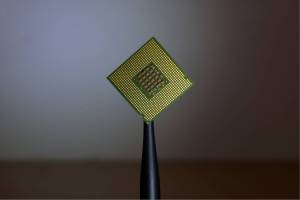
Nvidia Faces Potential Export Restrictions on AI Chips to China
In a recent development that has sent shockwaves through the tech industry, the US government is reportedly considering imposing new restrictions on the export of advanced chips used in artificial intelligence (AI) computing to China. This news has caused shares of leading chipmakers, including Nvidia and Advanced Micro Devices (AMD), to plummet by over 2% in early trading. If implemented, these export restrictions would be imposed by the Commerce Department, following previous limitations on chip exports to China. Let’s delve deeper into the potential implications of these restrictions and their impact on Nvidia specifically.
The US government has been tightening controls on the export of sophisticated chips to China, particularly those used in AI computing. Nvidia and AMD have already experienced the adverse effects of prior limitations on chip sales to China. This new development threatens to further disrupt their operations in the Chinese market.
In response to the previous export restrictions, Nvidia took proactive measures to address the situation. The company developed a lower-spec chip, the A800, specifically tailored for the Chinese market. This strategic move aimed to mitigate the risk of lost sales due to export controls. However, with the proposed new restrictions, even the A800 chip would be subject to export restrictions without licensing. This would pose significant challenges for Nvidia’s business in China.
If the new export restrictions are implemented, Nvidia stands to face substantial hurdles in its operations and revenue generation in China. The company’s efforts to develop a chip specifically for the Chinese market may be rendered ineffective, severely impacting its ability to compete and meet the demand for AI computing solutions in the country.
The potential export restrictions also extend beyond Nvidia and AMD. Other chipmakers, such as Marvell, Broadcom, and Qualcomm, have experienced slight declines in their stock prices following the news. The implications of these restrictions are not limited to hardware manufacturers alone.
According to reports, the proposed restrictions would also encompass companies that offer cloud-based computing solutions. This move aims to close the loophole that some companies have exploited to circumvent export controls. By broadening the scope of these restrictions, the US government seeks to ensure comprehensive oversight and control over the export of AI-related technologies to China.
The imposition of export restrictions on AI chips reflects the ongoing tech competition between the United States and China. Both countries recognize the strategic importance of AI in various sectors, including defense, healthcare, and autonomous vehicles. As such, the US government aims to protect its technological edge and national security interests by tightening controls on the export of advanced chips to China.
The potential export restrictions on AI chips to China pose significant challenges for Nvidia and other chipmakers. If implemented, these restrictions would hinder Nvidia’s ability to cater to the Chinese market, affecting its revenue and competitive position. This move is part of a broader US strategy to safeguard its technological superiority and national security interests in the face of the growing influence of AI in various sectors. As the future unfolds, it remains to be seen how these potential restrictions will shape the tech landscape and impact the US-China tech competition.
First reported on CNBC





